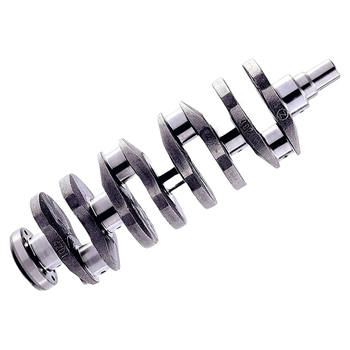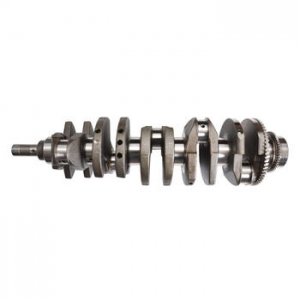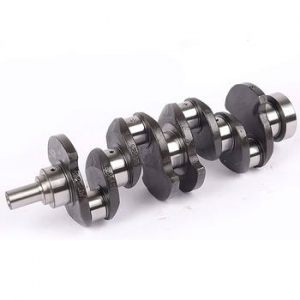Introduction
Have you ever experienced strange noises coming from your car's engine? Or maybe your vehicle suddenly loses power while driving? These could be indications of a failing crankshaft. In my experience, this is one of the most serious issues you can face with your vehicle's engine. To help you stay informed and avoid costly repairs, let's dive into the signs of a failing crankshaft and what you can do to prevent it.
What Does a Crankshaft Do?
Before we discuss the symptoms, it's essential to understand the role of the crankshaft in your engine. The crankshaft is responsible for converting the linear motion of the pistons into rotational motion that drives the wheels. It's a critical component that connects to the engine's flywheel, allowing the transmission to engage and disengage smoothly.
How Does a Crankshaft Fail?
Several factors can contribute to a failing crankshaft. These include:
Symptoms of a Failing Crankshaft
Now that we understand what causes a crankshaft to fail, let's discuss the warning signs that indicate a problem:
Unusual Noises
One of the earliest signs of a failing crankshaft is unusual noises coming from the engine. These sounds may include knocking, rattling, or grinding. The noises may become more pronounced when you accelerate or put pressure on the engine.
Engine Vibrations
If you feel excessive vibrations while driving, it could be a sign of a damaged crankshaft. These vibrations can be felt in the steering wheel, brake pedal, or gas pedal. They may become more intense as the engine speed increases.
Poor Engine Performance
A failing crankshaft can lead to poor engine performance. You may notice that your vehicle struggles to accelerate, has reduced power, or stalls frequently. In extreme cases, the engine may not start at all.
Oil Leaks
Oil leaks around the crankshaft seals can indicate a problem. When the seals become damaged or worn, engine oil can leak out, causing a decrease in oil pressure and leading to further engine damage.
Check Engine Light
If your check engine light comes on, it's always a good idea to have your vehicle inspected by a professional. A failing crankshaft can trigger the check engine light, so don't ignore this warning sign.
Preventive Measures
To prevent a failing crankshaft, follow these maintenance tips:
- Regularly change your engine oil and filter
- Monitor your engine's coolant level to prevent overheating
- Replace your timing belt or chain according to the manufacturer's recommendations
- Have your engine checked by a professional if you notice any unusual symptoms
Conclusion
In conclusion, recognizing the signs of a failing crankshaft is crucial for maintaining your vehicle's engine health. Don't ignore unusual noises, vibrations, or poor engine performance. By following the preventive measures mentioned above and staying proactive with maintenance, you can avoid costly engine repairs and keep your car running smoothly.




